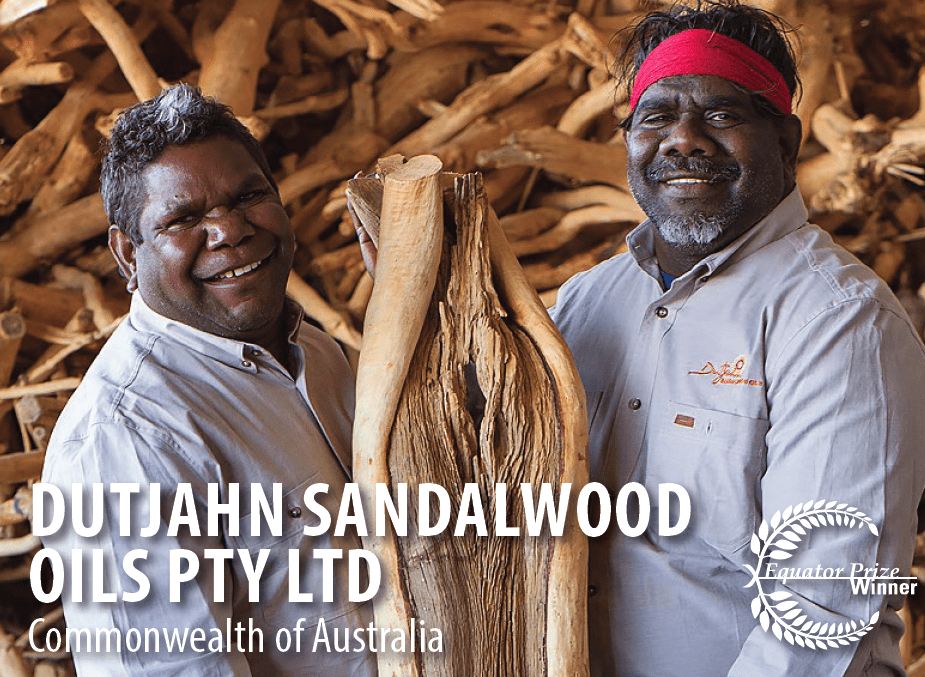“Dutjahn (Australian sandalwood, Santalum Spicatum) is more than a sacred plant to the Martu and Wongi Nations, it is part of our soul and a key link to our spiritual identity.”
— Darren Farmer, Chairman of Dutjahn Custodians, Owner – Dutjahn Sandalwood Oils
Culture and Industry: Equitable Partnerships
Speakers in many of the SHP webinars this year weave together themes from the ethnobotany series and also the botanical industry, bringing in discussions of culture and community and how these are integral to responsibly sourcing botanical ingredients from around the world.
My conversation with Clinton Farmer and Keith Drage touched on so many themes that are of importance to doing this work well: respect for each other, connection to the land and to the stories of that land, hard work, certifications, commitment to a vision of caretaking and stewardship of sandalwood trees.
In closing, I asked Clinton if he could talk about how connecting to the land had helped him personally.
You can hear his response here:
Sandalwood and its Importance to Australian Aboriginal communities
This webinar discusses the unique partnership that led to the creation of Dutjahn Sandalwood Oils, a Western Australian based sandalwood oil distillation company backed by Dutkahn Custodians, Kutubbubba Aboriginal Corporation, and the founders of WA Sandalwood Plantations (WASP) in Australia. Dutjahn, the Aboriginal word for ‘Sandalwood’ in the Martu and Wongi language, is 50% Indigenous-owned and makes essential oils by fusing Indigenous harvested wild wood from native title lands with sustainably managed plantation wood. Winner of a UN Equator Prize and two-time Australian Exporter Award winning company, Dutjahn supplies many of the world’s largest fragrance companies.
Clinton Farmer talks about the importance of the sandalwood tree and harvesting for the Australian Aboriginal communities and, in particular, the cultural practices of custodianship that Clinton learned from his father, Ken Farmer, that is at the heart of Dutjahn Sandalwood Oils. And Keith Drage and Clinton speak about the evolution of the partnership with WASP and how partners ensure that the relationship is equitable and fair for all parties, particularly the Aboriginal communities who are often excluded or exploited in international trade partnerships.
More Information
For more information, see the following resources:
- The case study about Dutjahn Sandalwood Oils has been published and can be found on the Equator Initiative webpage here.
- DSO website www.dutjahn.com (the Estee Lauder video is on the front page)
- K Farmer Dutjahn Foundation website www.kfdf.com.au
- WASP website www.wasandalwood.com
Speakers
Clinton Farmer, Director, Dutjahn Sandalwood Oils
Clinton is a self-employed sandalwood harvester and he manages and operates the Kutkububba Aboriginal Corporation’s Indigenous Martu harvesting enterprise. Caring for Country and following in his father’s footsteps is a cultural and commercial obligation to the Martu people. He is also a Director of Dutjahn Sandalwood Oils. He has never worked for anyone in his whole life, because he is a self-employed sandalwood harvester. His father (first contact – deceased) taught him to care for country with socio-economic and environmental principles.
Keith Drage, Managing Director, WA Sandalwood Plantations (WASP)
Keith immigrated to Australia in late 2000 and shortly after, together with Ron Mulder, founded WA Sandalwood Plantations (WASP). Keith has been involved with developing and managing every commercial Australian sandalwood plantation developed by WASP. Keith oversees WASP’s commercial management including investor relations, finance and sales. In addition, Keith has focused on the marketing, distribution and sales of sustainable plantation sandalwood products into India, China and Taiwan. Keith graduated in Chemistry from University College, London in 1986.
Learn More
For background information, see the following resources:
- “Loved to death: Australian sandalwood is facing extinction in the wild.” By Richard McLellan, Oct. 6, 2021.
- McLellan RC, Dixon K, Watson DM. Prolific or precarious: a review of the status of Australian sandalwood (Santalum spicatum [R.Br.] A. DC., Santalaceae). The Rangeland Journal;
- Dutjahn Sandalwood Oils
- WA Sandalwood Plantations – History of Sandalwood and the Plantation Industry in Australia
- Dutjahn Sandalwood Oils & the Estée Lauder Companies (13 minute video).


Comments